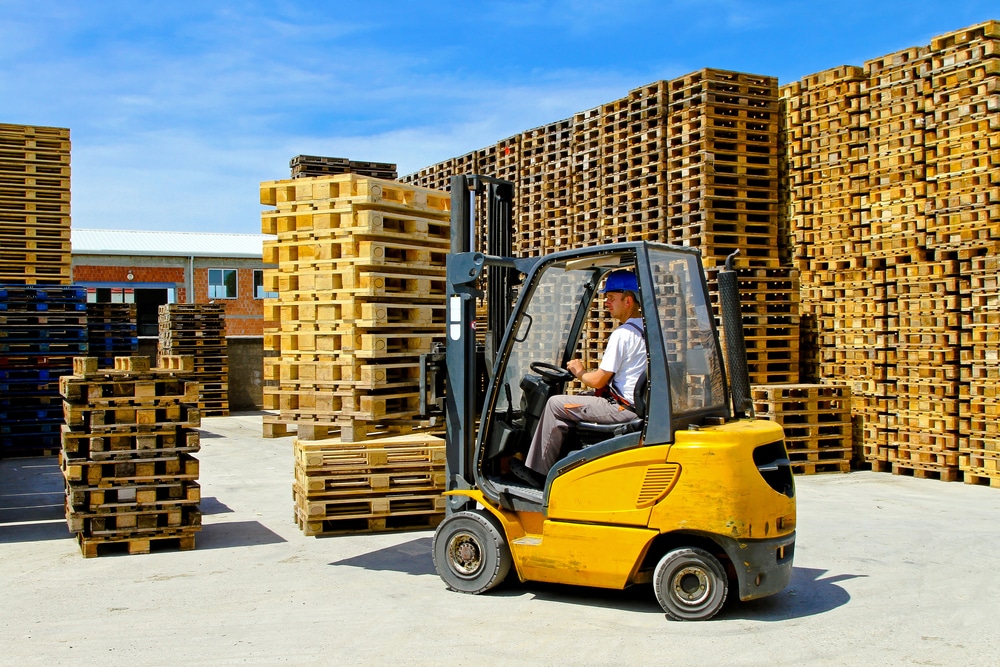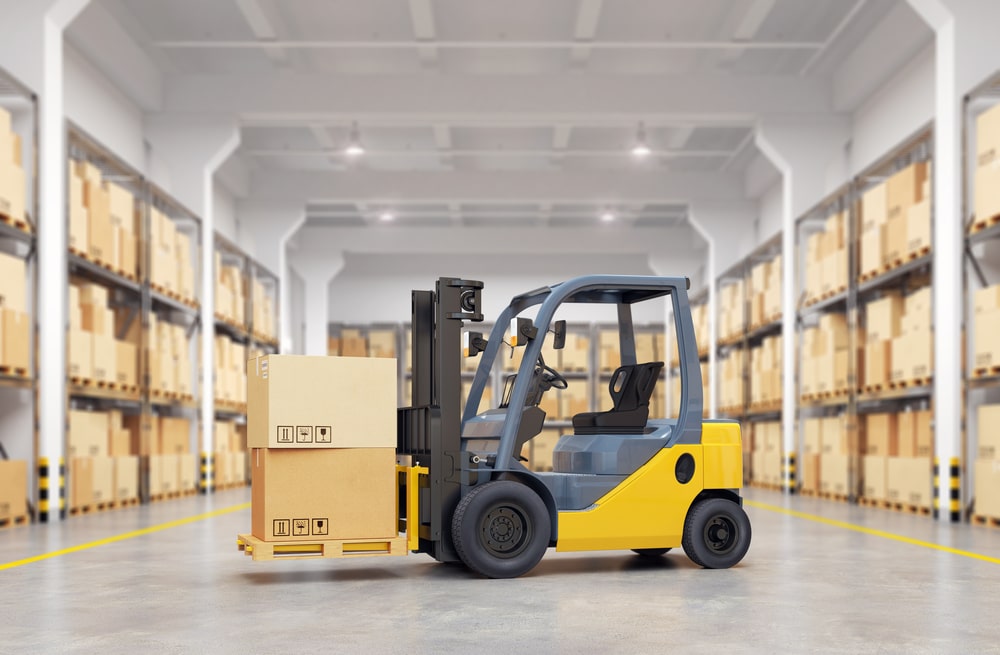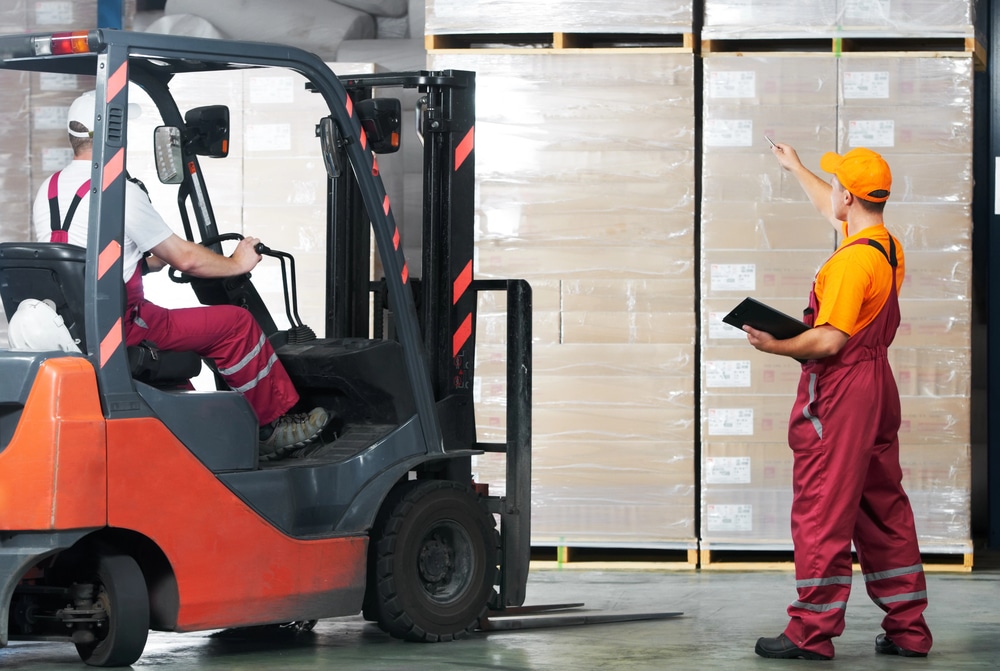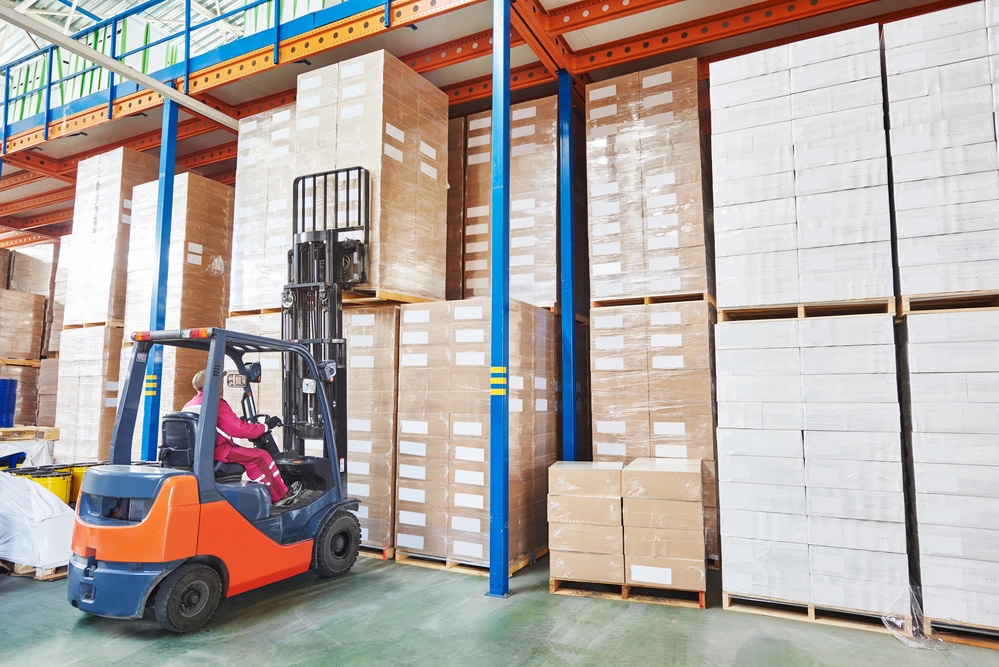Can You Drive a Forklift with a Suspended License?

There’s a lot of confusion and misinformation about “forklift licenses” and how they relate to regular driver’s licenses. Even long-term forklift operators can get confused.
While driving on public access roads is governed by state laws enforced by state agencies, a forklift operator is subject to federal regulations administered by the business they work for.
Read on to learn how lift truck driving is regulated, how to get back behind the lift if your certification is revoked, and how to improve your forklift training. We also have a full library of forklift safety training courses.

Driver’s License vs. Forklift Certification
First, let’s be clear about an important distinction—a driver’s license and a forklift certification are two very different things. A driver’s license doesn’t let you operate a forklift, and a forklift certification doesn’t allow you to drive another type of motor vehicle.
Whether you’re in a warehouse or even driving a forklift on a public road, forklift operators only need a certification. No state requires a forklift operator to have a state-issued driver’s license.
However, the Occupational Health and Safety Administration (OSHA) requires that every forklift driver be properly trained and certified.
Employers are required to provide OSHA-compliant training. That means programs may look slightly different from employer to employer.
However, they all must meet the same requirements:
- Truck-related topics – Forklift operators must be trained on topics like instrumentation, operation, refueling, and charging for all trucks they’ll be driving.
- Workplace-related topics – Forklift operator training should include learning about surface conditions, traffic patterns, and operating limitations in the workplace.
- Formal training – Your training needs to include classroom-based instruction like lectures, reading, or videos.
- Practical training – OSHA also requires training that includes demonstrations and practical exercises about driving, operating the lift, etc.
Once you’ve completed training, you’ll receive an operator card or certificate. This is your “forklift license.” Make sure you keep it with you at work.
Qualifications
Is getting your lift truck training and certification harder than getting a driver’s license? Yes and no.
In most states, you can get a state-issued driver’s license at age 16. However, forklift operators need to be 18 to receive a certification.
Federal regulations require your employer to provide forklift training, but there’s no standardized test or state certification. On the other hand, it’s also a lot easier to lose your forklift license and much of it is up to your employer’s discretion.

Can You Drive a Forklift with a Suspended Driver’s License?
Yes, you can drive a forklift with a suspended or revoked driver’s license; there’s no law against it. However, not having a driver’s license can affect your employment in other ways.
- Employer Requirements – It’s not uncommon for employers to require a valid driver’s license or CDL on top of a lift truck license. It shows an ability to get to a job without relying on another person.
- Reliability— Even if your employer doesn’t require a driver’s license, they may still be concerned about what led to your license suspension and whether you can reliably be on time. If you lost your license for a DUI, they may have concerns about your drug and alcohol use on the job.
- Career Growth – A suspended license may also limit your career growth with some companies.
Double-check with your supervisor or foreman before you operate a forklift with a suspended driver’s license.
Reasons for Forklift License Suspension
There are several ways you can get your forklift license suspended or revoked:
- Failure to keep certification current – OSHA requires all forklift operators to receive performance evaluation and refresher training at least once every three years. In addition, you must receive refresher training if workplace conditions change or you’re assigned to a different type of truck.
- Safety violations – Operating a truck under the influence of drugs or alcohol, failing to wear your safety equipment, or another violation could see your license get suspended.
- Serious accidents – If you are involved in a forklift accident that causes death, injury, or serious property damage, you may get your license revoked for a time.
- Fraud – If you’re found to have submitted false documents or lied about your experience, you may get your license immediately suspended.
Consequences of Losing Your Certification
If your forklift license is yanked, you won’t be allowed to operate a truck until it’s reinstated. Your employer can receive huge fines, legal liability, and other penalties for having an unlicensed operator, so don’t expect them to bend the rules!

What to Do if You Lose Your Forklift Certification
Losing your forklift license could mean losing your job and struggling to find another. It’s important to take proactive steps to get your certification reinstated.
First, talk to your employer about the reasons for your suspension and the reinstatement process. According to OSHA standards, you’ll need to retake a training course to get back behind the wheel. An employer may have other requirements; for example, you may need to take a drug test or receive a write-up in your file.
For minor safety incidents that didn’t result in injury or damage, the reinstatement process is relatively quick and simple at most employers.
If you feel the suspension was unjust, there are a few things you can do. If you’re in a union, talk to your union rep. If not, you can search for and consult a worker-side labor lawyer. An attorney can provide expert advice, and most will provide an initial consultation for free.
What to Do for an Unjust Forklift License Suspension
- Get your paperwork together – Assemble all relevant paperwork, including training records, your license, any emails about your suspension, and any safety reports or commendations. You want to show that you’re a safe operator who complies with all safety guidelines.
- Contact an expert – Get in touch with a union rep or an employment attorney who can help you navigate the law. Don’t rely on your co-workers for information.
- Determine your next move – Appealing your license suspension could look like sending a letter to your employer, or it could mean filing a case with the Equal Employment Opportunity Commission (EEOC) in some instances. An attorney can help you determine the best next steps and prepare you if you need to appear in front of a judge.

Getting Your Forklift License Reinstated
If you weren’t involved in a serious accident, your company will probably work with you to reinstate your license. After all, they lose money if they’re not using all their forklift drivers.
You’ll have to complete both classroom-based and practical refresher training. If you had an incident due to operator error, they’d want to ensure you don’t repeat the same mistake.
Your company may also require you to complete other steps, like getting a drug test. They may also write you up or put you on probation for a certain period of time.
The company can also pull your license and terminate your employment. In that case, you’ll have to go through job training again with a new job before you can get in a forklift cab again.
Getting a Job with a Reinstated License
If your forklift license was suspended, it will likely go on your work history. And if an accident led to your job termination, that will definitely show up in your employment history.
Either way, a potential future employer will likely have questions and concerns about your compliance with forklift safety guidelines.
Be honest and upfront in any job interviews, and make sure your resume specifically highlights any steps you took to get your valid license back. Forklift operators have nothing to gain from lying or refusing to answer questions.

Proper Training for Forklift Operators Prevents Accidents
Forklift operators may not need to be licensed drivers, but they do need engaging, informative training that meets OSHA standards and builds necessary skills.
Proper training and certification in operating forklifts give future drivers the skills and knowledge they need to use dangerous equipment safely.